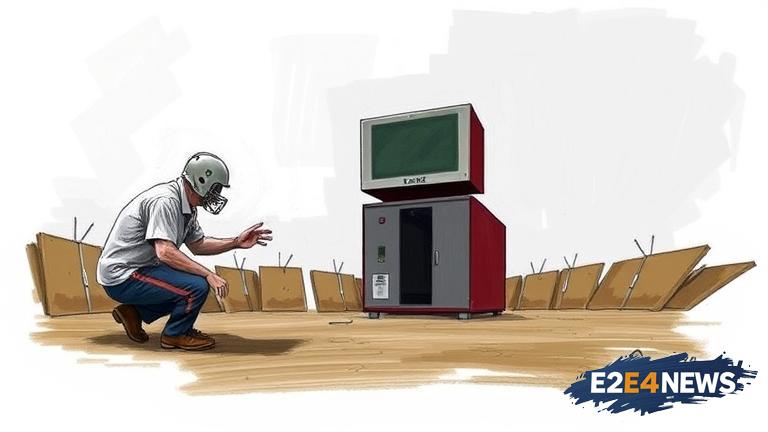The state of Tennessee is preparing to execute an inmate who has an implanted defibrillator, a device that helps regulate his heartbeat. This execution is unprecedented, as it raises questions about the ethics and logistics of carrying out the death penalty on an individual with a life-sustaining medical device. The inmate, whose name has not been released, has been on death row for several years and has exhausted all his appeals. The execution is scheduled to take place in the coming weeks, and the state is working to ensure that the procedure is carried out in a humane and dignified manner. However, the presence of the implanted defibrillator has added a new layer of complexity to the process. The device is designed to deliver an electric shock to the heart in the event of a life-threatening arrhythmia, and it is unclear how it will be affected by the execution process. The state has consulted with medical experts to determine the best course of action, but the situation remains uncertain. The use of the implanted defibrillator has also raised questions about the inmate’s health and well-being, and whether he is truly fit to be executed. The American Medical Association has weighed in on the issue, stating that it is unethical for medical professionals to participate in executions. The organization has also expressed concerns about the potential consequences of executing an individual with a life-sustaining medical device. The case has sparked a national debate about the death penalty and the use of medical devices in executions. Many have argued that the execution is inhumane and that the state should consider alternative forms of punishment. Others have argued that the inmate’s crimes are so heinous that he deserves to be executed, regardless of his medical condition. The situation has also raised questions about the role of medical professionals in executions and whether they should be required to participate in the process. The state has maintained that the execution will be carried out in a humane and dignified manner, but the presence of the implanted defibrillator has added a new layer of uncertainty to the process. As the execution date approaches, the state is working to ensure that all necessary precautions are taken to minimize the risk of complications. The case is being closely watched by human rights organizations and medical professionals, who are concerned about the potential consequences of executing an individual with a life-sustaining medical device. The situation has also sparked a debate about the ethics of the death penalty and whether it is ever justified to take a life, regardless of the circumstances. The use of the implanted defibrillator has added a new layer of complexity to the debate, and it remains to be seen how the situation will be resolved. In the meantime, the state is working to ensure that the execution is carried out in a humane and dignified manner, while also taking into account the inmate’s medical condition. The case is a reminder of the complexities and challenges of the death penalty, and the need for careful consideration and deliberation in all cases. The situation is being closely monitored by human rights organizations and medical professionals, who are concerned about the potential consequences of executing an individual with a life-sustaining medical device. The state’s decision to proceed with the execution has been met with criticism from some quarters, with many arguing that it is inhumane and unjustified. However, others have argued that the inmate’s crimes are so heinous that he deserves to be executed, regardless of his medical condition. The case is a complex and challenging one, and it remains to be seen how the situation will be resolved. The use of the implanted defibrillator has added a new layer of uncertainty to the process, and it is unclear how the situation will unfold. The state is working to ensure that the execution is carried out in a humane and dignified manner, while also taking into account the inmate’s medical condition. The case is a reminder of the need for careful consideration and deliberation in all cases, and the importance of prioritizing human life and dignity.





